Antivirus is just one part of keeping your PC secure. What about backups, password storage, and software updates? Do you use a VPN? Are you monitoring the dark web for your personal data? That’s where security suites come in — they bundle all the tools you might need into a convenient package. Everything is available in one place for a single payment, no juggling eight different applications with different subscription fees.
There are all kinds of features you’ll find in premium security suites. We’ll use Norton 360 Deluxe as an example here, as it’s our top antivirus security suite pick here at PCWorld. But all popular security suites from Avast One and AVG Internet Security to Avira Prime and McAfee Total Protection offer a variety of similar features.
Security suites frequently include dark web monitoring for details like your e-mail addresses, phone numbers, and credit cards. The dark web is a place where people can better hide their identity and be anonymous. It may involve using software like the Tor web browser and anonymous .onion sites, for example.
Given the vastly improved anonymity, there’s a seedy underbelly of criminal dark web sites where databases full of e-mail addresses and passwords, payment details, and other private information are sold. The dark web scan feature will let you know if your information appears in one of these breaches. You’ll be able to see what appears in various leaks.
Chris Hoffman/IDG
Norton 360, like many other security suites, offers dark web scanning for your e-mail addresses as well as any phone numbers and credit card numbers you may want to provide. You’ll get reports about the contents of each breach the scan finds.
You can get this kind of monitoring in a lot of places. For example, Google’s Google One subscription offers dark web monitoring, too.
Premium online security suites usually include built-in VPN services. While our top-rated VPN services aren’t the ones built into online security applications, VPNs built into security apps work fine. A VPN is a nice to have security feature and having it built into your security app means you don’t have to juggle a pile of different system tray icons. Everything is in one place.
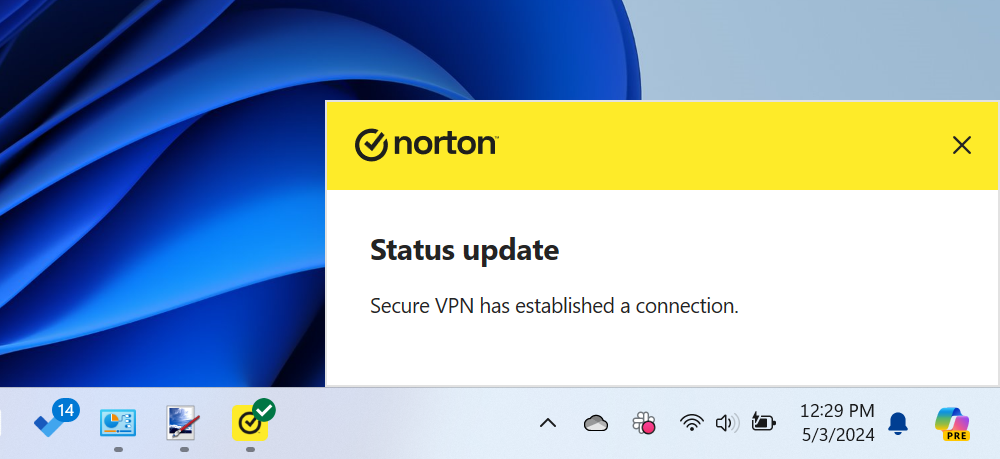
Chris Hoffman/IDG
The VPN built into Norton 360, for example, can be configured to automatically start and protect your connection whenever you connect to a public Wi-Fi network. You can turn it on and off whenever you want — on any connection — and choose what region it connects to. It supports optional features like split tunneling (only sending traffic from some apps through the VPN) and a kill switch (automatically cutting off all network access when the VPN connection goes down to protect your privacy).
Dedicated VPN apps may be shinier and have more bells and whistles, but you may not need them. A capable VPN is a great additional value in a security application. You won’t have to pay for a VPN subscription separately and you won’t have to deal with the drawbacks of a free VPN like a limited monthly data allowance.
Everyone should use a high-quality password manager. After all, you need to use strong, unique passwords for all your accounts and unless you have a photographic memory, there’s no way to remember them all.
Online security suites have bundled password managers. For example, you get Norton Password Manager with Norton 360. Like with other password managers, you can generate and autofill passwords and access them on any browser you use — with Android and iPhone apps, too.
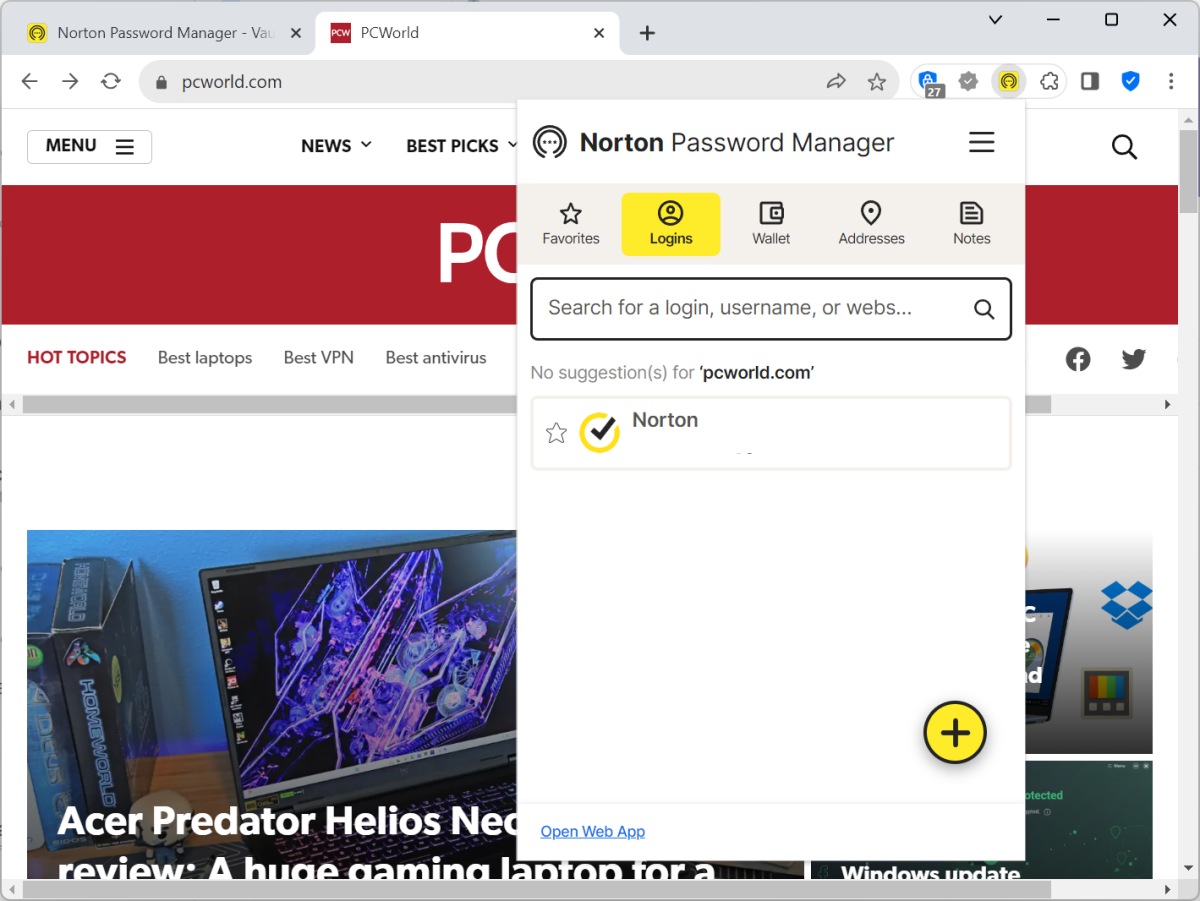
Chris Hoffman/IDG
If you’re seeking out the absolute best password manager, you may want to look for a dedicated one (check out PCWorld’s top password manager picks). But Norton’s password manager is perfectly capable.
In fact, there are a wide variety of solid password managers these days. We even think using Google Chrome’s built-in password manager is fine. An online security suite that bundles a solid password manager means you don’t have to pay for anything extra.
Online security suites also often bundle some cloud backup capabilities. Norton 360 Deluxe gives you 50GB of online storage so you can back up your personal files.
These built-in cloud backup tools are nice to have in a pinch. If you need to back up a lot of files, you may want a dedicated cloud backup service.
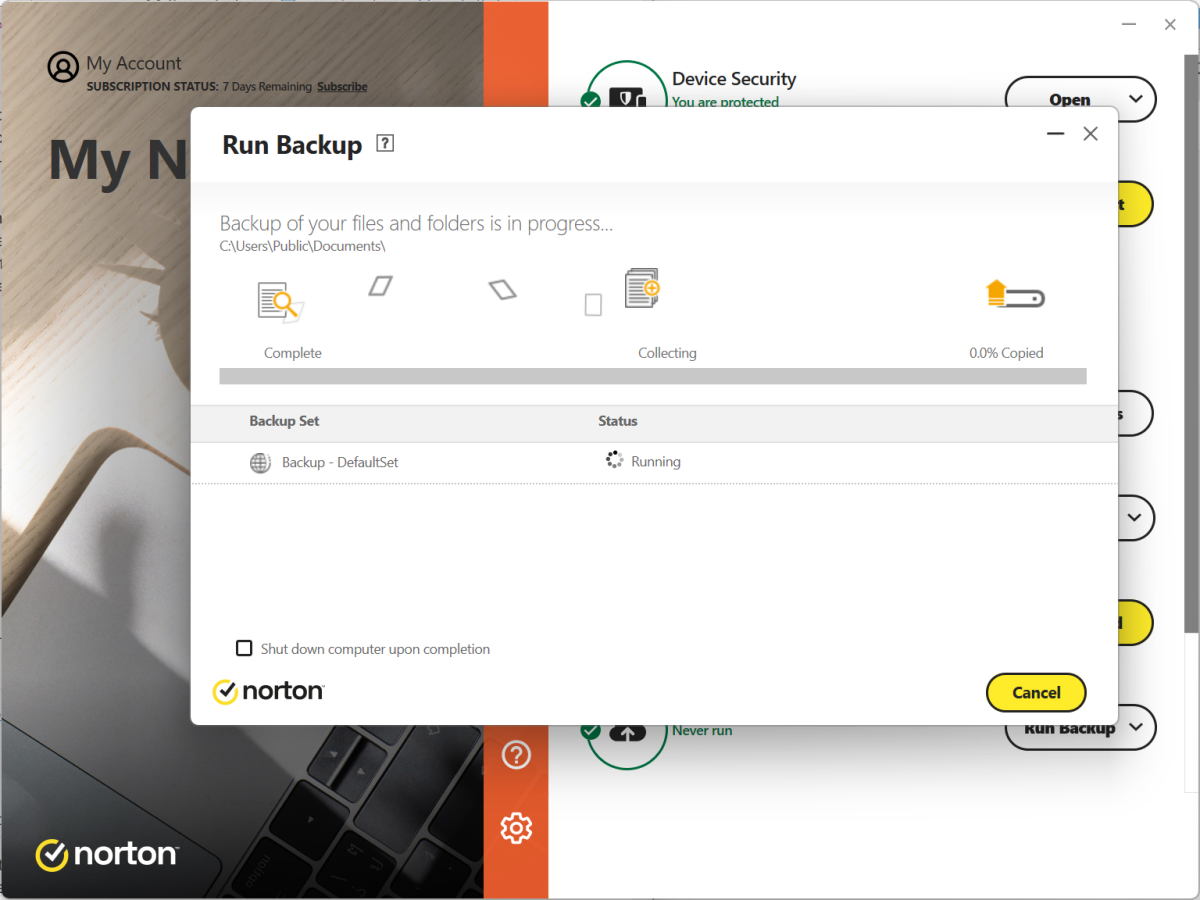
Chris Hoffman/IDG
Likewise, it’s worth noting that if you pay for a Microsoft 365 subscription, you get 1TB of cloud storage with OneDrive and OneDrive can sync folders like your PC’s Documents folder to the cloud.
Still, you only get 5GB of OneDrive storage with Windows unless you pay. That 50GB of cloud backup storage in Norton, for example, will be more than enough for many people, no extra payments required.
Windows application updates are messy. Unlike on an Android phone or iPhone, apps have to update themselves on a PC. You can easily end up with outdated applications installed and they might have security flaws.
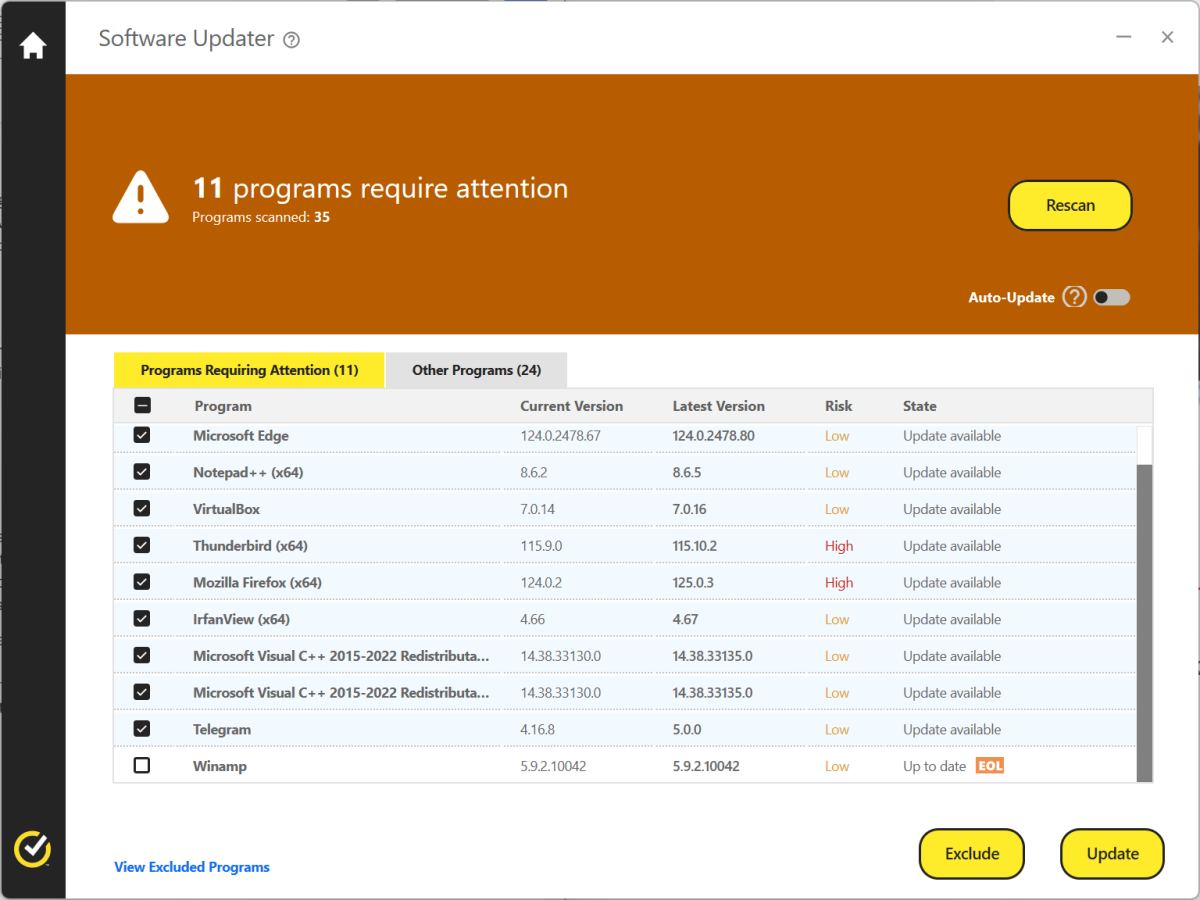
Chris Hoffman/IDG
That’s why security suites often include software updaters: They’ll scan your computer for installed software, let you know which ones have updates, and tell you how important they are for your security. They may even be able to auto-update these programs for you.
You can get features like this with other free apps, but they may be rather technical. I’m a big fan of the free WingetUI tool for updating apps, for example, but it doesn’t have the most user-friendly interface. Software updaters in security suites will have an easier-to-understand interface and be easy to find.
Data broker websites collect all sorts of public records on you and make them available to people who want to pay up. You can remove your data from these websites, but it’s a time-consuming task.
Some security suites have features that will scan for your personal information on these data broker sites and perhaps let you remove it. Norton 360, for example, has a privacy monitor feature that will scan data broker sites for your personal data and let you know where it’s found.
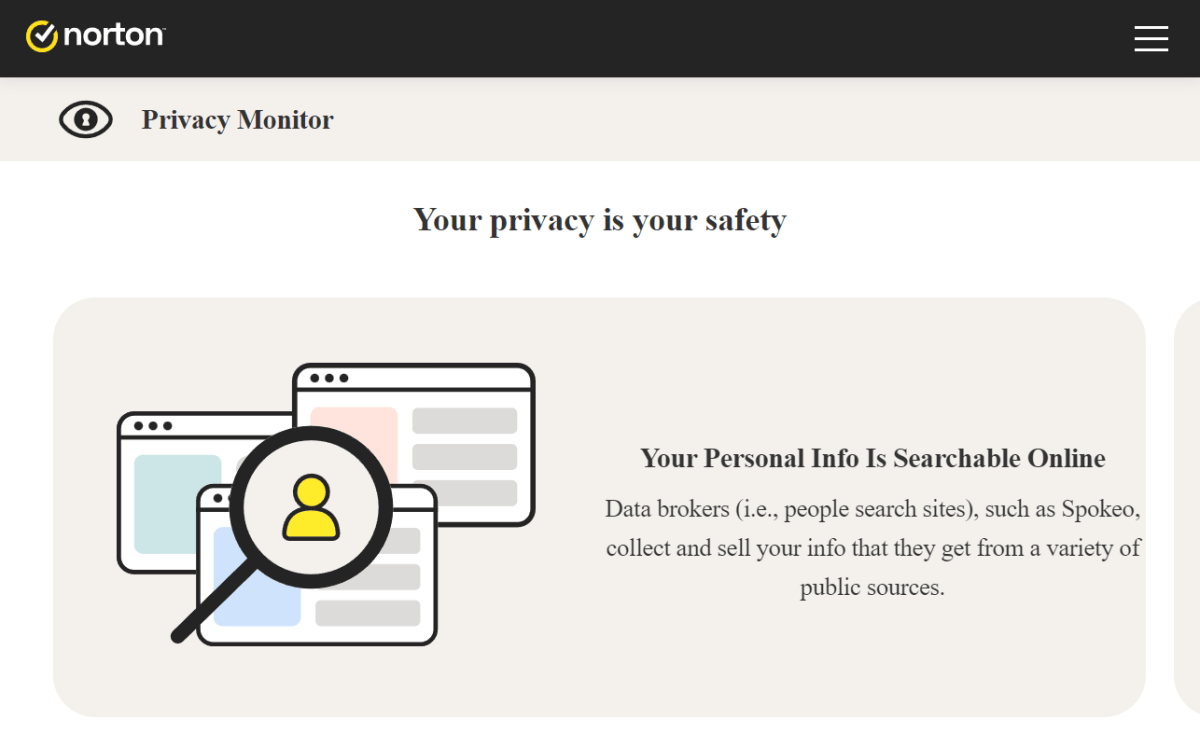
Chris Hoffman/IDG
You can then contact these sites on your own to get them to remove your data. Unfortunately, Norton charges you extra for the Privacy Monitor Assistant if you want Norton to do the legwork of removing the data on your behalf. Still, it’s good that Norton and other security suites are letting people know about this privacy concern — data broker sites are big business, but they aren’t often talked about.
Security suites are increasingly bundling their own unique web browsers with their security suites. For example, Norton 360 offers Norton Private Browser. These are totally optional — you can keep using Chrome, Edge, Firefox, or whatever other browser you might prefer instead.
These browsers will feel familiar to use. They tend to be based on the same open-source technology that underlies Google Chrome. They also bundle extra features: Norton’s browser has Norton’s password manager built-in, naturally.
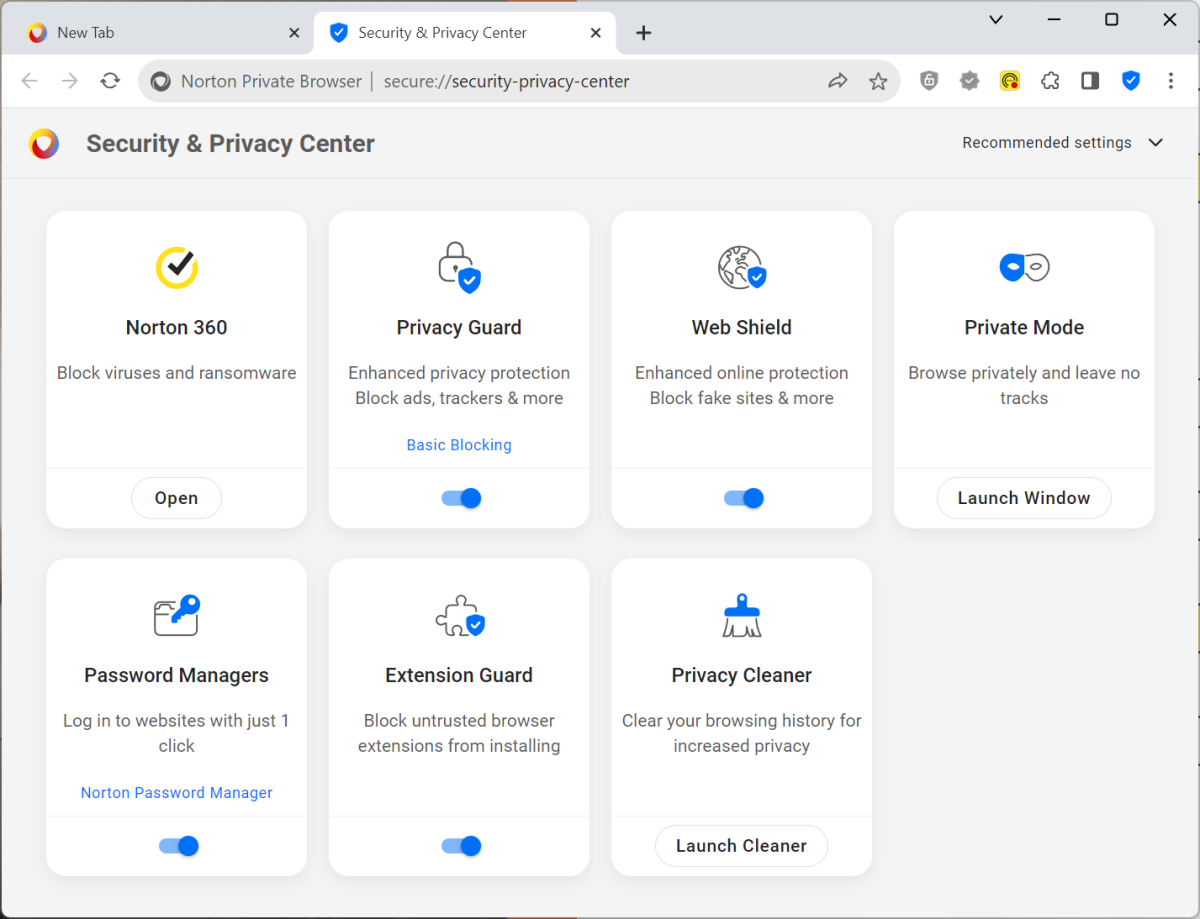
Chris Hoffman/IDG
Security suites also tend to offer browser extensions that warn you about dangerous websites in your browser of choice. For example, Norton has the Norton Safe Web extension for Chrome, Edge, and Firefox. It’s the kind of thing that’s built into Norton’s own browser.
In my opinion, a dedicated web browser isn’t a critical feature — modern web browsers are pretty secure and you probably already have a web browser you use and trust. You can also install your security suite’s browser extension in whatever browser you currently use. But security-focused browsers are clearly in high demand and they’re fine if you want to use them. They’re just customized versions of Google Chrome, after all.
You’ll often find parental control features built into security suites, too. For example, Norton 360 has Norton Family built in. You can monitor what children are doing on the web, set screen time limits, and access other similar features. With the associated mobile apps, you can also keep track of a child’s location (or at least the location of their phone!).
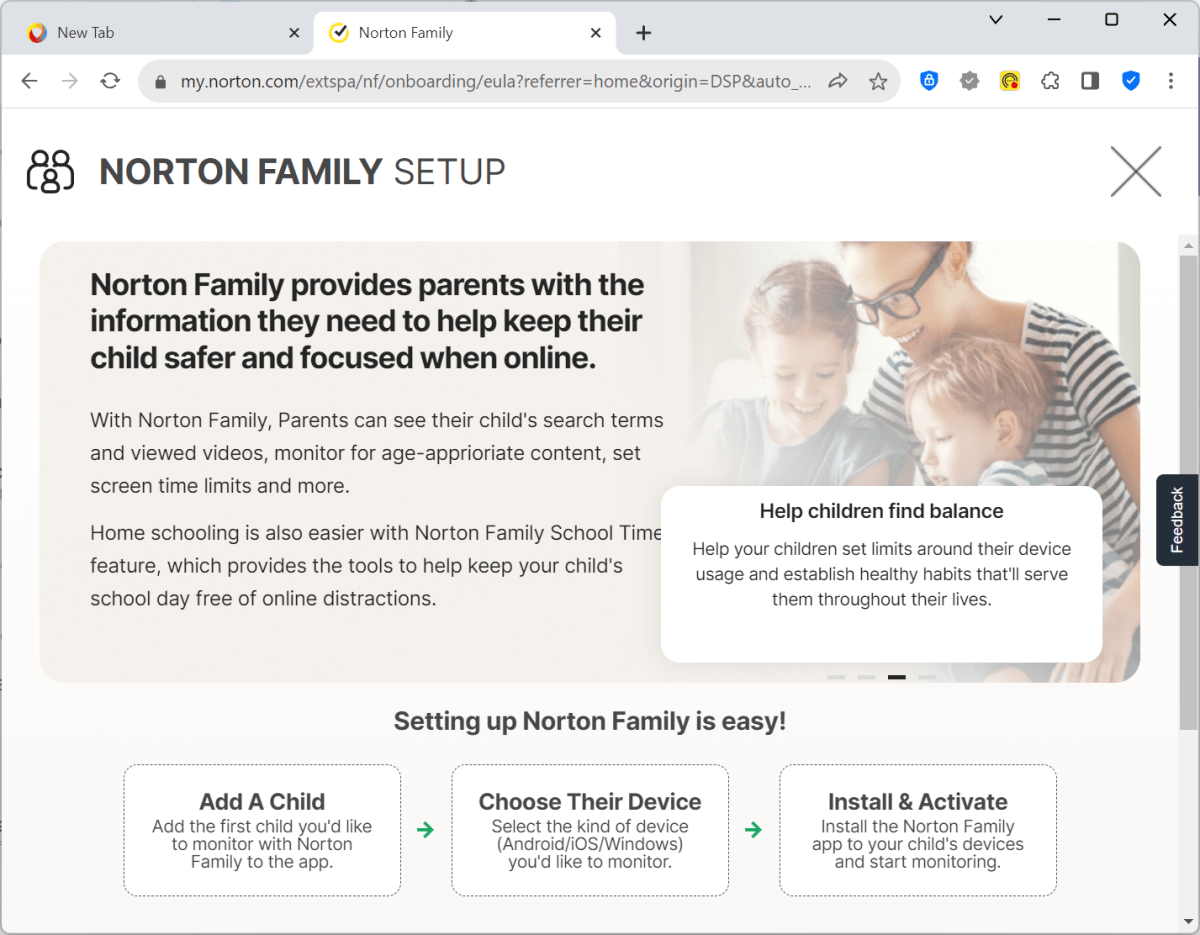
Chris Hoffman/IDG
Available parental control features will vary depending on the application you choose. It’s worth doing some research to see whether the parental controls in a security suite fit your needs, or whether you may want a different tool with different features. But once again, it’s nice to have this thrown in: You get a useful package of software that you’d often have to pay for bundled with all the other tools in your security suite of choice.
Security suites offer a lot of features. Many of them, like password managers, VPNs, and online backup, often require separate subscription fees if you go for dedicated apps.
That’s a big difference between paid premium security suites and free antivirus programs: Security suites go beyond antivirus. Free antivirus programs often stick to the basics — just antivirus software and you’ll have to look elsewhere for any extras. Free antivirus software does the job, but paid security suites often have some nice-to-have extras.
Which you prefer is up to you. Maybe you want to seek out the best password manager, top-tier VPN, and and assemble your own security suite from parts. Go right ahead!
But it’s easy to see the value of a security suite in providing everything in a convenient bundle. There’s a lot of value in simplifying things and saving time. Having all those tools in one dashboard is a much cleaner experience that will be much easier for many people to understand.
Why get eight different pieces of software when you can install one to do the same job?



